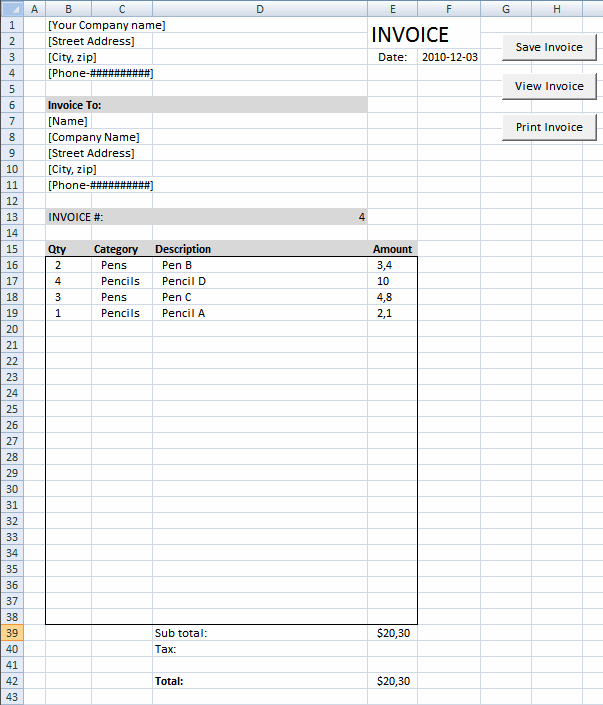Vba Link Mac Download
Twitter: This is a tutorial on how to save in VBA on a Mac! Download link: http://adf.ly/DxOzf. TriLookupLite Mac, which works on 32 bit and 64 bit Excel versions 98 or through 2016 for Macintosh (with the exception of Mac Excel version 2008, which doesn t support VBA TriLookupLiteMac30.zip Download TriLookup and TriLookupLite Version 3.0 User's Guide.
To get our program to work, we first need to create a reference to a new instance of Word, then use this to create a document. Finally, we need to loop over our cells typing the values of each into this new Word document.
Creating a New Instance of Word
The first thing to do is to create a reference to a new Word application in memory. We'll store this reference in a variable. You can do this in one of two ways. The first way is easier to understand:
'create a variable to refer to a copy of Word
Dim WordApp As Word.Application

'now set this variable to refer to a new app
Set WordApp = New Word.Application
However, the second way is easier to write:
'set variable to refer to a a new copy of Word
Dim WordApp AsNew Word.Application
So which is better? The short answer is the second one, I think, because it's simpler - but it does have implications. What follows is a fairly technical summary of what these are.
Using the NEW Keyword - Pros and Cons
Consider the following line of code:
'set variable to refer to a a new copy of Word
Dim WordApp AsNew Word.Application
This does not set the variable to a reference to Word, it just means that the variable will be set to a reference to Word the first time that it is used. There are two small disadvantages to this:

- There is a slight overhead as the variable is checked to see if WordApp is Nothing every time it is used;
- Consequently you can never explicitly test if WordApp is Nothing because the instant you do, the variable is instantiated.
IMHO you don't need to worry about this, but at the owlery we try not to gloss over things!
Making an Application Visible
The next thing to do is to make sure that you can see the copy of Word:
'make sure this copy of Word is visible
Vba Link Emulator Download Pc
WordApp.Visible = True
You might be wondering why this is necessary. When you create a copy of an application in VBA, it isn't automatically visible. Had you missed out this line, you would have had to press ALT + CTRL + DEL to list out running processes to close it down:
Select the running copy of MS Word - called WINWORD.EXE - and end the process.
Note that the copy of Word you've created programmatically will NOT show up in the Applications tab of this dialog box.
Writing Code within the 'Foreign' Application
Once you have created a copy of Word within memory, you can run commands within this. Here is what our full macro could look like:
Sub ListJugglersInWord()
'set variable to refer to a new copy of Word
Dim WordApp AsNew Word.Application
'make sure this copy of Word is visible
WordApp.Visible = True
Vba Link Mac Download Cnet
'create a new document in this
Dim doc As Word.Document
Set doc = WordApp.Documents.Add
'loop over all of the jugglers
Dim JugglerRange As Range
Dim JugglerCell As Range
Set JugglerRange = Range( _
Range('A1'), Range('A1').End(xlDown))
ForEach JugglerCell In JugglerRange
'for this juggler, write name into Word
WordApp.Selection.TypeText JugglerCell.Value
WordApp.Selection.TypeParagraph
Next JugglerCell
MsgBox 'You should now see your jugglers in Word!'
EndSub
The commands to type information into Word are:
'for this juggler, write name into Word
WordApp.Selection.TypeText JugglerCell.Value
WordApp.Selection.TypeParagraph
It is vital that you include the WordApp object at the start of every Word VBA command, as explained below.
The Importance of Including the Application Prefix
Supposing that you had missed out the WordApp object from the 2 lines shown above, to get:
'for this juggler, write name into Word
Selection.TypeText JugglerCell.Value
Selection.TypeParagraph
This will not compile or run - here's why. When Excel sees the word Selection, it tries to find this in its list of referenced object libraries:
Excel will start from the top and work its way down in order. It will find the word Selection within the Excel object library before it finds it within the Word one, and so assume that this is a built-in Excel object.
Because Excel is above Word in the list of references, the compiler will assume that Selection refers to the currently selected cells in Excel, and complain loudly that you can not apply the TypeText method to an Excel range:
The error message you will get if you try to run the macro without prefixing the Word Selection object.
Vba Link Mac Download
In theory you could change the order of the references to put Word above Excel, but apart from being terrible practice - after all, you're coding within Excel - this isn't actually possible (you get an error message if you try to demote Excel in the references list).
Vba Game Link
Now we've got all of the theory out of the way, let's look at a worked example of how to get an Excel workbook to fill in a Word form.